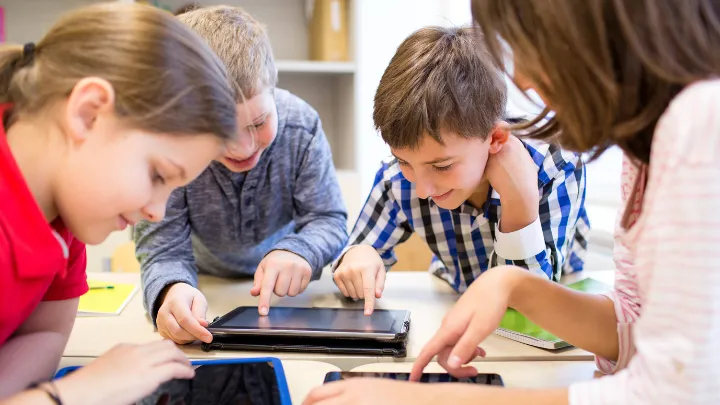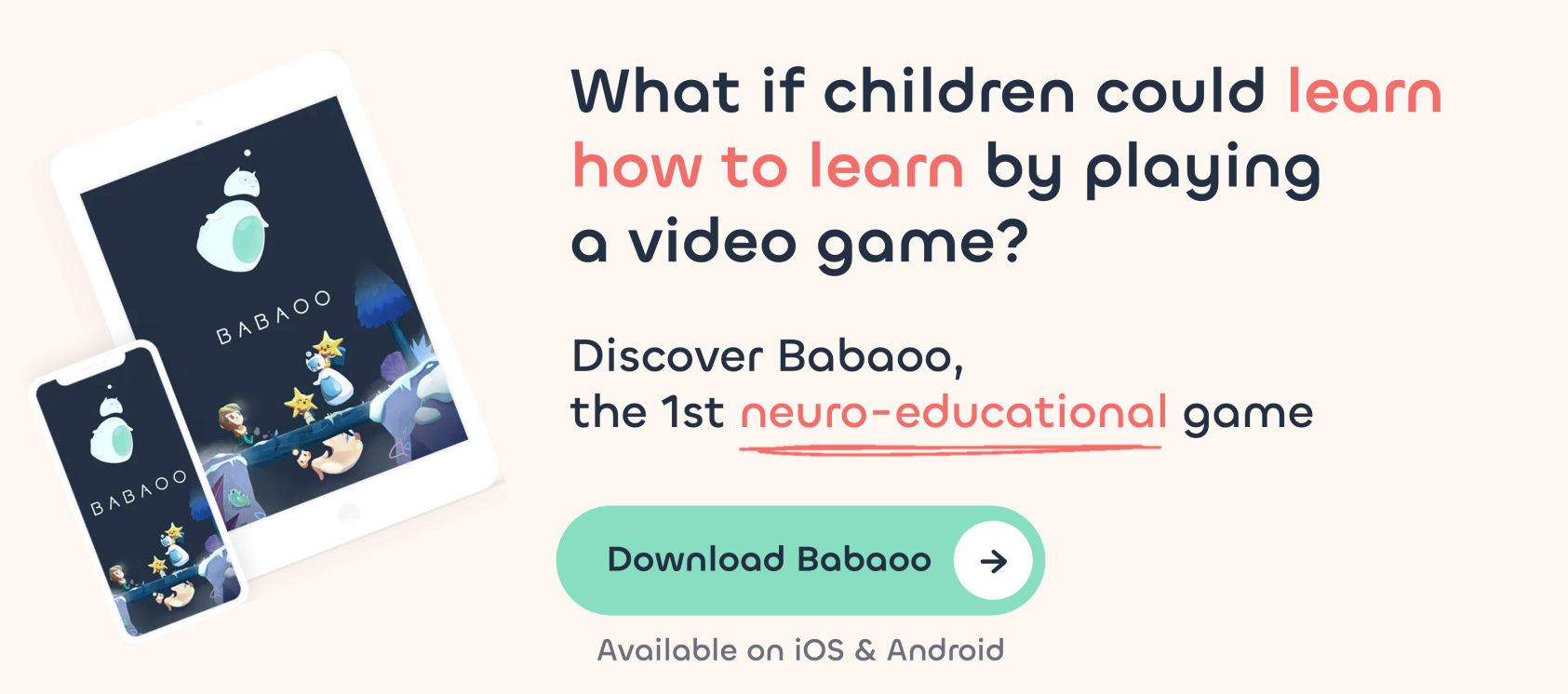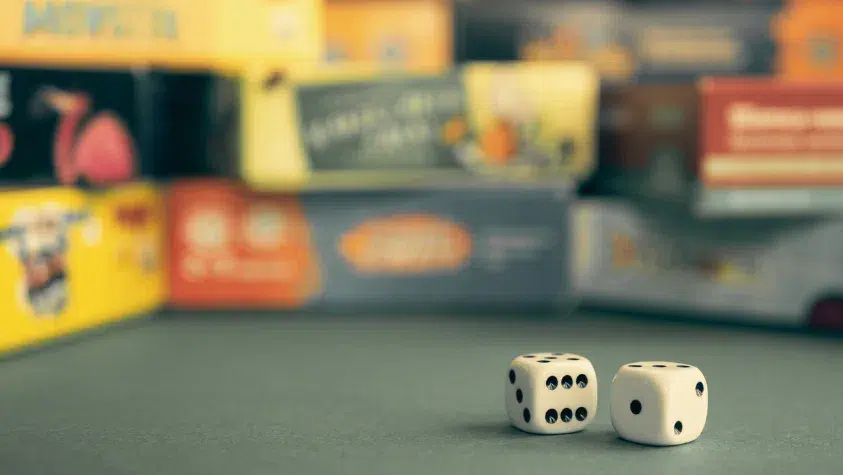
The benefits of learning through video games

Your kids are amazing! Watch them discover day after day how to speak, walk, count, sing, draw, create… Amazing, isn’t it? 🏋️
Learning is an essential part of life. In fact, we spend most of our youth in the classroom. But in reality, the adventure of learning begins from the very first seconds of our existence and continues long after we graduate… and that, imperceptibly! 🤯
Until the age of 6, learning takes place mainly through play. Our children have fun and understand the world by exploring, manipulating and playing! As they grow older, leisure activities change, and hide-and-seek games gradually give way to a range of other activities, including games on consoles, tablets or smartphones. 📱
Gaming, a continuous learning process
To learn, there’s nothing better than to play! Even before they can read or write, our children spend their time playing. They learn by coloring, following cooking recipes, counting blocks of different colors… This period of learning through play proves its effectiveness. So why stop there? 🤷
Nowadays, the video game industry has evolved to become a real pillar of education, making certain video games and online games real learning tools. Our children can now learn while having fun! 🎮
But how can a video game help you learn?
First of all, you need to choose the right game. Games like Minecraft, Roblox and Animal Crossing offer different experiences and don’t contribute to education in the same way.
Take Babaoo, for example: while entertaining, it aims to educate young players. Its main mission is to explain to children how their own Brain works. 🧠
If video games are considered educational, it’s because they meet several key criteria:
- It’s incremental ➡️: in a video game, the player very often starts at level 0, with a tutorial, before progressing freely, at his own pace, and as he wishes. Little by little, their abilities, strengths and equipment improve and develop, enabling them to progress to higher levels without too much difficulty. There’s no going back in the game, as the player only progresses, he loses nothing.
- It allows for iterations 🔄: your little one will repeatedly repeat the same actions over the course of the game. This repetition will trigger new cognitive reflexes. An important first point, since this is the basis for developing everyone’s potential.
- It’s “non-judgmental” 👍: a video game very rarely causes stress. The game is there to relax, to have a good time. No (or little) anxiety, no note at the end: your child will play being himself, he will behave naturally, without fear of being observed or judged by others.
- It’s relevant 🤝: scientific studies prove, today, that video games help develop cognitive functions. An educational video game engages players, stimulates their emotions, logic, motivation and self-esteem, while improving their speed of information processing.
Babaoo, a neuroeducational video game that teaches learning
In Babaoo, your child embodies an avatar who sets out to discover the Brain-World, a place where harmony reigned until the arrival of an invasion of Distractors. Teaming up with the Babaoos, the guardians of his Brain’s superpowers, he will solve puzzles and take on challenges, and through training, strengthen the cognitive skills involved in his Inhibition and Attention abilities.
The Brain-World, represented in Babaoo by a fantastic universe whose geography is structured like a neural network, is a graphically soft and poetic place. The Brain’s operating principles are presented with an initial metaphorical (but still scientifically accurate!) reading, and illustrated with Cards to collect from its inventory.
As the game progresses, your child explores the rich and incredible world of his own Brain, takes on stimulating challenges, and learns how to combat Distractors. In real life, this learning will help them to think before they act, manage distractions better and focus their attention more effectively. Essential skills for Learning to Learn!

The game is based on four essential phases, together forming a dynamic learning cycle:
- Concept Discovery👀: this initial stage involves the discovery and understanding of a new concept and skill. Think of it as the “tuto” part of learning. It’s the time when players begin to explore and understand the basics.
- Skill Practice 🏋️: here, players repeatedly practice the newly acquired skill, leading to gradual automation and mastery.
- The Contextualization of the skill, in other situations✅: this phase allows players to practice the skill in different contexts and scenarios over the course of the game, reinforcing their understanding and adaptability.
- Real-life Transfer🚀: the skill or concept learned in the game is now ready to be used in real-life situations, outside the context of the game. These are the Outside World Missions, inviting the Babaoo player to leave the game and carry out missions in real life, facilitating the transfer from the digital to the physical world.
These four learning phases form a spiral. More than a cognitive process, it’s also what inspires a teacher’s entire teaching process towards his or her students: discovery, training, structuring and transfer.
The Babaoo recap
Video games aren’t just a means of entertainment: when well constructed, they are a powerful tool for stimulating and developing the cognitive abilities of the youngest children.
By playing, they learn to better understand the world around them, to manage their emotions, to think critically and, of course, to have fun. Learning through play balances children’s social, emotional and academic skills.
By choosing the right video game for your child, you can enhance his or her creativity, curiosity and knowledge of the world around them. Even behind the screen, your child is not passive: his brain works, assimilates and creates. Far from being a mere spectator, he becomes the actor of his own adventure and learning! 💡
You may also be interested in these articles


